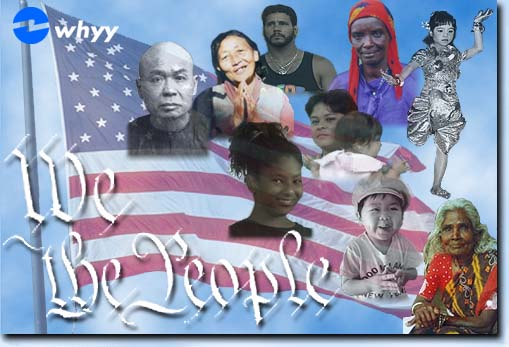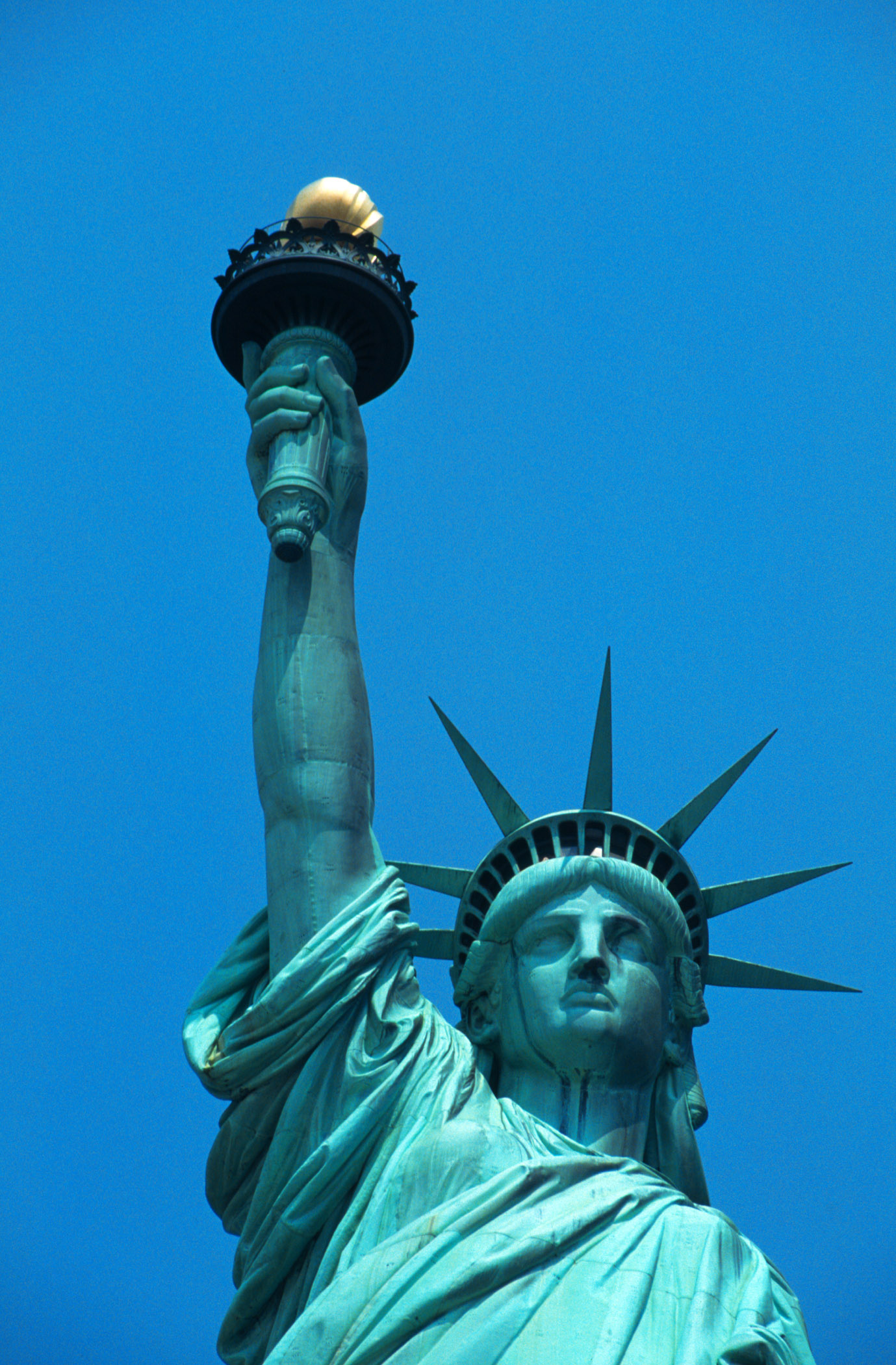|
|
LITR 5731 Seminar in Multicultural Literature: American Immigrant: model assignments 2010
|
|
Pamela Richey
Policy of Discrimination: Haitian Immigrants and U.S. Policy
For years the images of Cuban refugees and their “freedom boats” have caught the attention of the American public. Lately the news has been peppered with stories of the Elian, the Cuban boy who survived the harrowing voyage when his mother did not, only to be snatched from the arms of his family and deported back to Cuba. We rarely hear of the Haitians who continue to seek freedom in America, despite the fact that according to the BBC news thousands were picked up by the Coast Guard in 2003, “…more than from any other Caribbean nation” (http://news.bbc.co.uk/2/hi/business/3522155.stm). The article further claims that “unlike Cuban national, Haitian refugees are usually immediately deported if they come to the attention of the immigration authorities…” (http://news.bbc.co.uk/2/hi/business/3522155.stm). Why does the United States feel it necessary to ignore the Haitian immigrants’ petitions for the land of the free? It boils down to centuries of false perception, poverty and politics.
From its inception, Haiti has been seen as “less than” other nations. Popular belief of the time held that only those of white European descent possessed the ability to govern. Even those of fairer complexion, the mulattos, were ridiculed for their audacity in believing they were capable of self-government (Schiller and Fouron 104). This led to the belief that the United States had a moral duty to “assist” the weaker nation in its government. In a November 1926 article in The American Journal of Sociology the author argues that Haiti is a weak nation and needs the protection of the United States in order to guide them into “…a stable political and cultural system…”(Weatherly 355). The article specifically deals with the 1915 occupation of Haiti by the U.S. Marines, justifying the interference through the perception of Haiti and its people. Weatherly argues that the Haitians were never able to create a stable government and that Haiti was plagued by rebellion and revolution, citing the multitude of presidents deposed and assassinated in the ten years leading up to the occupation (Weatherly 355-6). This perception of the Haitian people as needing assistance from the benevolent U.S. stems from the early belief that Africans are unable to govern because their skin is the wrong color. Therefore, the U.S. was completely within its rights to stretch the letter of any treaty and swoop in to take care of the poor Haitian government (Weatherly 362). While the article is dated, it does provide insight into the imperialistic perception the U.S. has of Haiti. In a more recent article the same condescension comes through. Military personnel come for “protection of foreign interests” barreled into Haiti and took control of the government. In finding graft they realized “…they would have to take control away from the Haitian and rule, as one Marine put it, like ‘the Great White Father’” (McGrath 27). One Marine, looking back on his stint in Haiti “…remarked with disgust that ultimately the Marine’s mission resulted in not much more than making Haiti ‘a decent place for the National City Bank boys to collect revenues’” (McGrath 27).
This perception of Haiti as a weak state and its people as incapable of anything more than rabble rousing led to foreign intervention. Nearly from the beginning the Haitian government has been in debt to foreign banks. In order for France to recognize them as a nation in1825 Haiti agreed to pay its former master and reduce customs. To do this, the Haitian government had to procure loans from foreign banks. This began the cycle of interference that led the nation into poverty (Schiller and Fouron 214-215). Unable to pay back loans, the Haitian government took out new loans to cover them. Some were in the form of federal aid from the U.S. By accepting this aid Haiti agreed to work toward U.S. policies and the U.S. took responsibility for Haiti. By 1963 three U.S. companies controlled 40% of the Haiti’s imports. As a result, Haiti became unable to find resources to repay the loans and fell deeper into debt (219-220). Although Haiti has all of the trappings of an independent nation, it is inextricably tied to stronger nations as well as to the global lending institutions (212). In addition to the debt Haiti owes and its inability to repay it. The country is decidedly agrarian and most Haitians rely on agriculture for their livelihood. Coupled with the fact that most of the nation is “unsuitable for cultivation” (Loescher and Scanlin 316) Haiti is left with few resources. In addition, the abuses of power that came about under the dictator Duvalier did little to pull the country out of the poverty spiral. With no job opportunities, a failing economy and a corrupt government, Haitians turned to immigration as the only way to survive.
Francois Duvalier, Haitian president who came to power in the 50’s, purged all opposition to his government through political threats and his own private army tonton macoutes. This environment of terror led to the first wave of immigrants seeking asylum in the U.S. The first wave as is often the case, consisted of the well to do and skilled laborers. The first to leave Haiti did so on airplanes. Even those who arrived with nonimmigrant visas were ignored by the INS because they were well to do (Loescher and Scanlin 317-319). As more arrived on American shores though the U.S. began identifying Haitian immigrants as “economic migrants” as opposed to “refugees”. Economic migrants can be deported where as a political refugee has guaranteed asylum as long as they can prove “persecution on account of race, religion, nationality, membership in a particular group or political opinion” (314). Because Duvalier’s policies led to deeper poverty, the “boat people” were actively discriminated against. As the flow of immigrants became less skilled their reasons for immigrating became less political. They were no longer technically refugees and the U.S. sent them back almost as soon as they landed. Cubans were fleeing a communist state and at least Duvalier paid lip service to democracy and could be used as an ally (327). In addition there were fears that taking in large numbers of Haitian refugees would show support for the exiles and be seen as unfriendly to Duvalier’s government (337). In 1980, the State Department viewed all Haitian immigrants as economic migrants because their primary reason for leaving was to escape the poverty and their claim for persecution was punishment for leaving without permission (342-343). But Loescher and Scanlin contend that this policy is simply to keep immigration under control and discriminating against Haitians will keep other Caribbean nationals from seeking asylum as a refugee (346).
There is a pragmatism in the U.S. policy toward Haitian immigrants. Most are unaware of the political machinations of previous governments and rely only on what they see on the surface as a Haitian problem: they made it, they need to clean it up. Only when you dig deeper into the reasons for their poverty do you find that it is really our mess that we are cleaning up and sweeping under the rug. If nobody sees it, it isn’t our problem.
Works Cited
Loescher, Gilburt and John Scanlin. “Human Rights, U.S. Foreign Policy, and Haitian Refugees.” Journal of Interamerican Studies and World Affairs 26.3(Aug 1984): 313-356. JStor. Ebsco. Alfred R. Neumann Library. 13 Jun 2010.
McGrath, Roger D. “Haitian-Building: From the Halls of Montezuma to the Shores of Port-au-Prince.” The American Conservative. Apr 2010: 26-27.
Schifferes, Steve. “Haiti: An Economic Basket-Case.” BBC News 1 Mar 2004. British Broadcasting Corporation. 14 Jun 2010 < http://news.bbc.co.uk/2/hi/business/3522155.stm>.
Schiller, Nina Glick and Georges Eugene Fouron. Georges Woke Up Laughing: Long-distance Nationalism and the Search For Home. Durham: Duke University Press, 2001.
Weatherly, Ulysses G. “Haiti: An Experiment in Pragmatism.” The American Journal of Sociology 32.3 (Nov 1926):353-366. JStor. Ebsco. Alfred R. Neumann Library. 8 Jul 2010.


